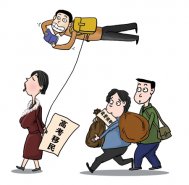2012年金融英语考试保险与证券辅导汇总
A. What is insurance?
Insurance is an arrangement by which one party (the insurer) promises to pay another party (the insured or policyholder) a sum of money if anything happens which causes the insured to suffer a financial loss.
insurance n. Coverage by a contract binding a party to indemnify another against specified loss in return for
premiums paid.保险:保险公司根据与另一方签订得契约进行赔偿,一方遭受的特定损失予以补偿
(保险是指投保人根据合同约定,向保险人支付保险费,保险人对于合同约定的可能发生的事故因其发生而造成的财产损失承担赔偿保险金责任,或者当被保险人死亡、伤残和达到合同约定的年龄、期限时承担给付保险金责任的商业保险行为。)
(the) insured n. The party who stands to benefit from an
insurance policy.保险受益人:从保险合同中受益的一方;被保险者
The responsibility for paying such losses is then transferred from the policyholder to the insurer. In return for accepting the burden of paying for losses when they occur, the insurer charges the insured a price, the insurance premium. policyholder n. One that holds an insurance contract or
policy.保险客户,投保人:拥有一张保险契约或保险单的人
insurer n. One that insures, especially an insurance
underwriter.保险人:提供保险者,特别是保险商
insurance (sum) n. The sum or rate for which such a contract
insures something.保险金额:此类合同规定的保险的金额或比例
insurance (premium) n. The periodic premium paid for this
coverage.保险费用:为此种保险定期支付的保险费用
Consider two next-door neighbors, Bob and Steve. Both own houses worth USD 80, 000, but Bob has insured his house against possible loss by fire at a premium of USD 150 while Steve is uninsured. By insuring, Bob has been able to transfer the loss of USD 80, 000 to his insurer.
next-door neighbors隔壁邻居
insure (…against) vt. To cover with insurance.为…保险
His financial position is therefore the same whether or not his house burns down: whatever happens all he has to pay is a premium of USD 150. Although Steve avoids paying USD 150~ he has to bear the full costs of any fire. He is therefore USD 150 better off than Bob if there is no fire, but USD79, 850 worse off in the event of a conflagration.
financial position财务地位[状况]
better off a.状况好的;经济状况好的,富裕的
worse off ad.恶化, 情况更坏
conflagration n. 大火, 大火灾
Insurance works because the insurer can collect premiums from a group of people in similar circumstances, not all of whom will suffer losses in any one year. These premiums are then pooled together, and used by the insurer to pay losses. Losses are thus shared out among all the policyholders rather than borne solely by the unlucky few.
work vi. 起作用;操作
pool v. 共有, 集中(钱、力量等), 汇聚成
share out分配, 均分
bear (borne过去分词)) vt. To offer; render:提供;给予
Nowadays insurance not only shares losses among individuals and organizations, it also spreads them over time. This is possible because in years when losses are lighter than expected, insurers can build up reserves (out of premium contributions and their investment earnings) that can subsequently be used in more difficult years.
spread vi.To be extended or enlarged.延伸或扩大
premium contribution保费缴纳
investment earnings投资收益
reserve n. An amount of capital held back from investment in order to meet probable or possible demands.
储备金;资本准备金:从投资中留存下来的,为了应付可能发生的需要的一部分资金
B. Risks
Risk is present whenever human beings are unable to control or perfectly to foresee the future. Although we cannot foresee the future, we can, to some extent, measure it. When we toss a coin we do not know what will happen, but we can make a very good guess: we have equal chances of getting either a "head" or a "tail".
risk n. The possibility of suffering harm or loss;
danger.危险,风险(风险就是发生不幸事件的概率。换句话说,风险是指一个事件产生我们所不希望的后果的可能性。人们在日常生活中,经常会遇到一些难以预料的事故和自然灾害,小到失窃、车祸,大到地震、洪水、意外事故和自然灾害都具有不确定性,我们称之为风险。失窃、地震等造成损失的事件称为风险事件。而那些隐藏于风险事件背后的,可能造成损失的因素,称为风险因素。风险因素可以是有形的,如路滑造成车祸;也可以是无形的,如疏于管理造成失窃。)
to some extent某种程度上
head n. 正面(硬币)
tail n. 反面(硬币)
guess n. 猜测, 推测
We use the term risk where: although the precise future outcome is unknown, the possible alternatives can be listed (such as "heads" or "tails"); and the chances associated with those possible alternatives are also known (such as a 50 percent chance of either "heads" or "tails").
outcome n. A natural result; a consequence.结局:自然的结果
alternative n. 二中择一, 可供选择的办法, 事物
There are mainly four types of risk:
i. Fundamental and particular risk基本风险和特定风险
Fundamental risk affects either society in general or groups of people, and cannot be controlled even partially by any one person. Particular risk, on the other hand, refers to those future outcomes that we can partially control and it arises from individual decisions.
fundamental risk







